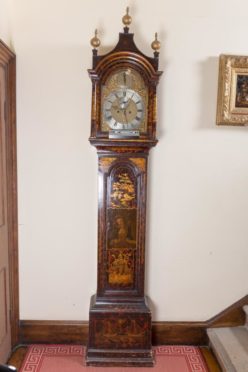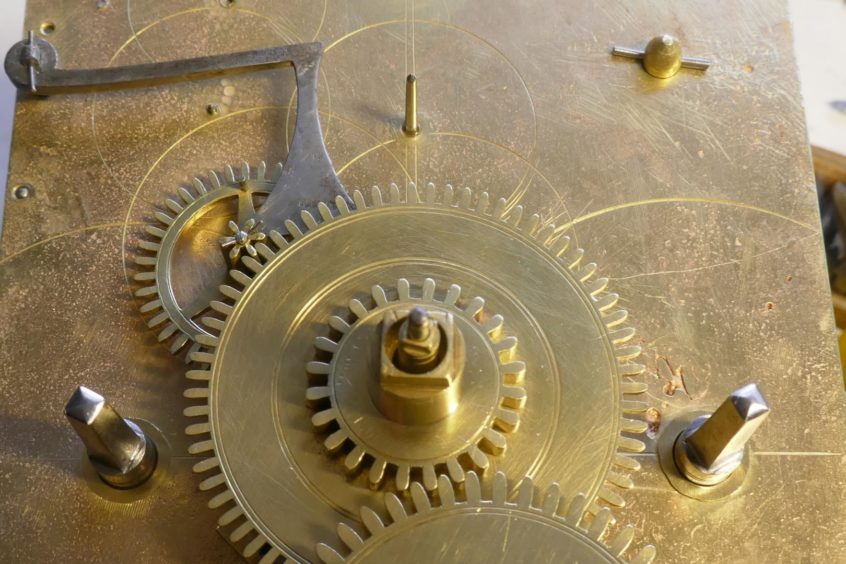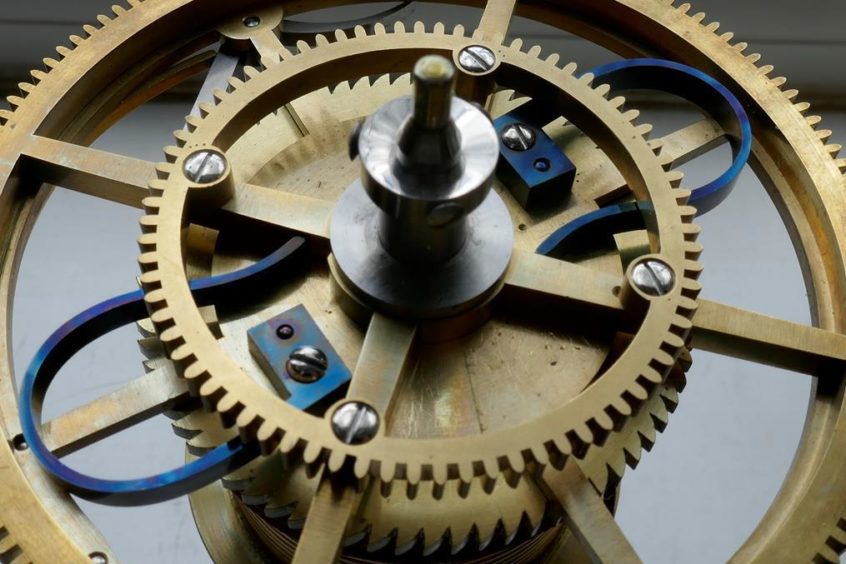Nearly 20 grandfather clocks from historic properties around the north-east have been restored to their former glory – just in time for the clocks to change this weekend.
The National Trust for Scotland was able to carry out the work thanks to the support of retired north-east nurse Jean Mackenzie.
Miss Mackenzie, who moved to Aberdeen to study nursing and went on to teach at the Robert Gordon University before retiring to Inverurie, made the generous donation before she died late in 2019.
Her support enabled the NTS to task local “clock doctor” Christopher Edwards with restoring 19 long clocks from properties including Drum, Crathes, Fraser, Craigievar, Fyvie and Brodie castles.
Clocks from Haddo House, Leith Hall and House of Dun have also been meticulously cleaned and brought back to full working order.
Donation sparked by love of family heirloom
Ali Macleod, head of fundraising at the NTS, said they were delighted to be able to fulfill Miss Mackenzie’s wishes.
“We were touched that Miss Mackenzie had chosen to donate to the trust in her final years, and that she wanted specifically to keep clocks ticking in properties across the north-east,” she said.
“In one of our conversations, we heard a clock chiming in the background and Jean told us it was her mother’s family clock. This family heirloom had stirred Jean’s passion for long case clocks and she knew her donation would enable essential conservation work be carried out on the clocks in our collection. It was with great sadness that we learned of her passing. Her support ensures that these historic clocks will be enjoyed by generations to come and are a fitting legacy that links the past to the future.”
The work is one of the largest projects focusing solely on the preservation of clocks in the north ever undertaken by the NTS.
‘A clock in a house makes it more like home’
Mr Edwards, who is based just at the Chapel of Garioch, said that often his work involves undoing the mistakes of the past.
“Quite often, as the clocks were quite robust, they were used by apprentices to practice on,” he said. “A lot of the repair work involves making new parts for the clocks as you can’t buy them off the shelf.
“But it’s worth it. For me, a clock in a house makes it more like a home. The ticking is almost like a heartbeat. Traditional wound clocks are also the ultimate in sustainability. They take no power to operate and, if looked after properly, can last hundreds of years.”
Don’t forget, the clocks go forward at 1am on Sunday.
And if you’re changing your own clocks, Mr Edwards has some advice: “Never turn the hands of a striking clock backwards as it can damage the mechanism. Either push the hands forwards to get to the right time or stop the clock for an hour.”


